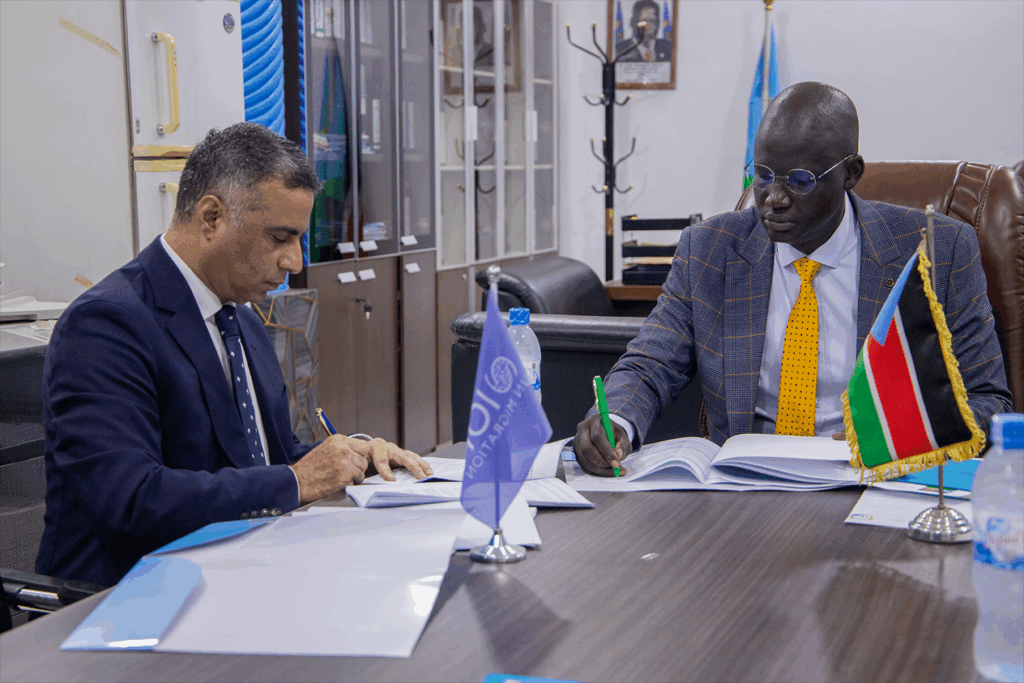The Ministry of Water Resources and Irrigation (MWRI), in partnership with the International Organization for Migration (IOM), has signed an output agreement to implement critical flood management and climate resilience interventions in Bor Town under the Regional Climate Resilience Program (RCRP) for Eastern and Southern Africa, Phase 1, funded by the World Bank.
According to a press statement extended to Radio Tamazuj on Tuesday, the project aims to reduce flood vulnerability and climate-related risks through sustainable infrastructure and capacity-building.
With a total funding ceiling of approximately USD 8.5 million, the project includes providing technical documentation and a basis for interventions, recalibration of hydrological and flood risk models, and strengthening stakeholder engagement and community consultations.
The money will also be used for the construction of a 10-kilometer primary dyke with gated culverts, rehabilitation and expansion of 95 kilometres of drainage channel, and stabilization of critical roads with erosion protection measures.
The project will also include embedding operation and maintenance systems and building local technical capacities and training for county engineers, and disseminating hazard maps to support preparedness planning.
“This partnership demonstrates our firm commitment to protect communities from the devastating effects of floods and climate change,” said Achier Manyuat John, Undersecretary of MWRI. “Through these interventions, we are strengthening Bor Town’s resilience, improving water and sanitation services, and empowering local communities to manage and maintain critical infrastructure sustainably.”
He added: “This is a milestone in our shared vision of climate-adapted, safe, and resilient communities.”
Vijaya Souri, Chief of Mission, IOM South Sudan, added said they are proud to work under the leadership of the Ministry of Water Resources and Irrigation to help communities in Bor build long-term resilience to floods.
“This partnership reflects our broader commitment to durable solutions in South Sudan – linking lifesaving flood management with efforts that enable stability, recovery, and sustainable development for the people most affected by climate shocks,” he stated.
This initiative is expected to enhance the safety and well-being of Bor Town residents, protect livelihoods, and strengthen disaster risk management through adaptive infrastructure and sustainable local practices. Once completed, it will help safeguard an estimated 70 percent of the town’s population and support more secure, resilient living conditions.
The Regional Climate Resilience Program (RCRP) is a multi-country initiative designed to strengthen the resilience of communities to climate change, floods, and droughts. In South Sudan, it is being implemented by MWRI and focuses on climate-resilient livelihoods, water resource management, early warning systems, and knowledge sharing to support flood-prone and vulnerable communities.
In line with World Bank Environmental and Social Standards, the project will implement robust environmental, social, health, and safety safeguards, including grievance handling mechanisms, labor condition management, and prevention of sexual exploitation and abuse.
Regular progress and financial reporting will ensure transparency and accountability.




